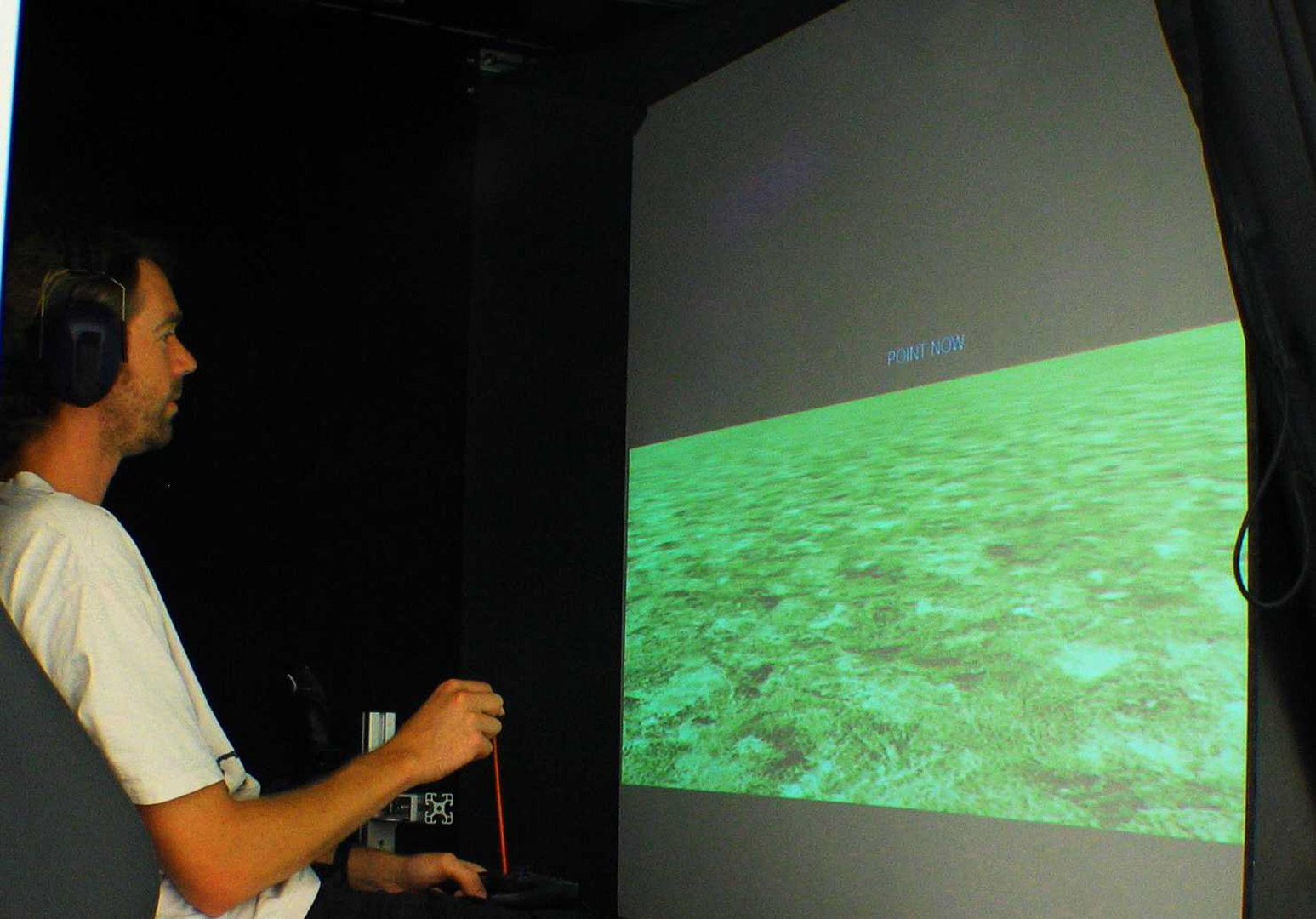“Point-to-origin experiments in VR revealed novel qualitative errors in visual path integration”
Conference:
Type(s):
Title:
- Point-to-origin experiments in VR revealed novel qualitative errors in visual path integration
Organizer(s):
Abstract:
Even in state-of-the-art virtual reality (VR) setups, participants often feel lost when navigating through virtual environments. In psychological experiments, such disorientation is often compensated for by extensive training and performance feedback. The current study investigated participants’ sense of direction by means of a rapid point-to-origin task without any training or performance feedback. This allowed us to study participants’ intuitive spatial orientation processes in VR while minimizing the influence of higher cognitive abilities and compensatory strategies. From an applied perspective, such a paradigm could be employed for evaluating the effectiveness and usability of a given VR setup for enabling natural and unencumbered spatial orientation even for first-time users, which is important for tasks such as architecture walk-throughs, evacuation scenario training, or driving/flight simulators.
References:
1. Klatzky, R. L., Loomis, J. M., Beall, A. C., Chance, S. S., and Golledge, R. G. 1998. Spatial updating of self-position and orientation during real, imagined, and virtual locomotion. Psychol. Sci. 9, 4, 293–298.





